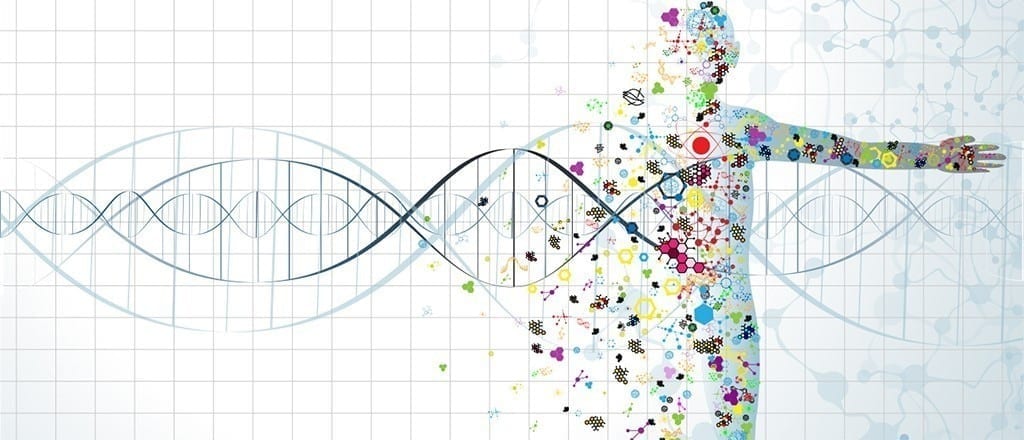
Could single-sex prawns serve the triple goal of alleviating poverty, protecting the environment and reducing disease?
BGU researchers Prof. Amir Sagi, who also serves as a member of the National Institute for Biotechnology in the Negev (NIBN) and his PhD student Tom Levy, say they may just have developed a monosex prawn that could make the winning trifecta possible.
In a groundbreaking study published last week in Scientific Reports, part of the Nature group, a research group headed by Prof. Sagi outline the development of male Macrobrachium rosenbergii with two female sex chromosomes but that lack the masculine sex chromosome – a so-called “super shrimp” that only produces female offspring. The emergence of an all-female population, developed together with the R&D team of Enzootic, a startup company specializing in all-female monosex aquaculture biotechnologies, could both increase aquaculture yields as well as serve as a natural agent to prevent the spread of harmful, water-bound parasites.
“We were able to achieve the monosex population without the use of hormones or genetic modifications and thus address both agricultural considerations, which favors monosex populations and ecological concerns. Prawns serve as efficient biocontrol agents against parasite carrying snails and since we can now use monosex prawns, which do not reproduce, it reduces the hazard of prawns becoming an invasive species” says Levy.
BGU partners with the “Espoir Pour La Santé” (EPLS) Biomedical Research Centre, a non-profit Senegalese medical research organization, which focuses its research on tropical infectious diseases that occur frequently in the sub-Saharan countries, including bilharzia and malaria?.
The publication comes on the heels of a study published in July in Nature Sustainability showing that freshwater prawn species serve as a biocontrol agent by preying on aquatic snail species that serve as intermediate hosts of the parasite that causes schistosomiasis in sub-Saharan Africa. In this study Prof. Sagi and Dr. Amit Savaya of BGU joined forces with a large team of researchers around the world headed by Prof. Giulio De Leo of Stanford University to outline control strategies drawing on both prawn aquaculture to reduce intermediate host snail populations and mass drug administration to treat infected individuals. Integrating both methods is found to be superior to either one alone.
“With monosex prawns at profit-maximizing densities, the prawns substantially reduce intermediate host snail populations and aid schistosomiasis control efforts. Integrated aquaculture-based interventions can be a win–win strategy in terms of health and sustainable development in schistosomiasis endemic regions of the world,” says Prof. Sagi.
Schistosomiasis is an acute and chronic disease caused by parasitic worms that can result in severe abdominal pain, diarrhea, and blood in the stool. In women, urogenital schistosomiasis may present with genital lesions, vaginal bleeding, pain during sexual intercourse, and nodules in the vulva. In men, urogenital schistosomiasis can induce pathology of the seminal vesicles, prostate, and other organs.
The World Health Organization estimates that at least 220.8 million people each year require preventive treatment for the disease.
Learn more: A Super Shrimp Designed at BGU Could Help Prevent a Disease that Affects 250 Million People
The Latest on: Schistosomiasis
[google_news title=”” keyword=”schistosomiasis ” num_posts=”10″ blurb_length=”0″ show_thumb=”left”]
via Google News
The Latest on: Schistosomiasis
- C’River to deworm 886,292 children in 14 LGson April 23, 2024 at 7:31 pm
THE coordinator, Cross River State Neglected Tropical Diseases (NTD) in the state’s Ministry of Health, Mrs Veronica Mark, ...
- Schistosomiasis : What Is It & Treatmentson April 13, 2024 at 2:28 pm
Overview An infection caused by parasitic flatworms that lives in fresh water in subtropical and tropical regions.. Symptoms Symptoms include abdominal pain, blood in stool, chills, fatigue, fever, ...
- A Discovery Among the Mummies Reveals a Sick, Sad Truthon April 8, 2024 at 4:30 am
A study of ancient Egyptian mummies has shown that schistosomiasis and malaria hounded the pharaohs. The Nile likely dictated which diseases were most common in ancient Egypt and Nubia.
- Innovative molecular biology technique allows for discovery of novel targets for candidate vaccines against schistosomiasison April 2, 2024 at 11:26 am
Researchers in Brazil have used an innovative technique in molecular biology to identify targets for candidate vaccines against Schistosoma mansoni, the parasite that causes schistosomiasis.
- Molecular biology technique allows for discovery of novel targets for candidate vaccines against schistosomiasison April 1, 2024 at 5:00 pm
Considered one of the world's 17 neglected tropical diseases (NTDs), schistosomiasis affects some 200 million people in 74 countries, according to the World Health Organization (WHO). Six million ...
- Diagnosis and Treatment of Schistosomiasis in Children in the Era of Intensified Controlon March 29, 2024 at 5:00 pm
S Knopp acknowledges additional financial support from the Schistosomiasis Consortium for Operational Research and Evaluation (sub-award no. RR374-053/4893196). The research of K. Ingram and J ...
- Schistosomiasis treatment improves with newly-discovered compoundon March 26, 2024 at 10:47 am
Recent study has turned our attention to schistosomiasis, its treatment options, and a promising breakthrough that could give new hope to millions affected by this disease. Schistosomiasis ...
- New compound shows promise as a more effective treatment for schistosomiasison March 24, 2024 at 5:00 pm
A newly developed compound is showing promise in animal studies as a more effective treatment for human schistosomiasis, an understudied tropical disease caused by parasitic worms. The spread of ...
- Diagnosis and Treatment of Schistosomiasis in Children in the Era of Intensified Controlon March 4, 2024 at 4:00 pm
S Knopp acknowledges additional financial support from the Schistosomiasis Consortium for Operational Research and Evaluation (sub-award no. RR374-053/4893196). The research of K. Ingram and J ...
- Parasites in motion: schistosomiasison June 4, 2023 at 11:02 am
The Museum's SCAN collection is the world's largest store of schistosomiasis material. It contains snails, larvae and schistosome worms, allowing scientists to learn more about the life cycles of ...
via Bing News










